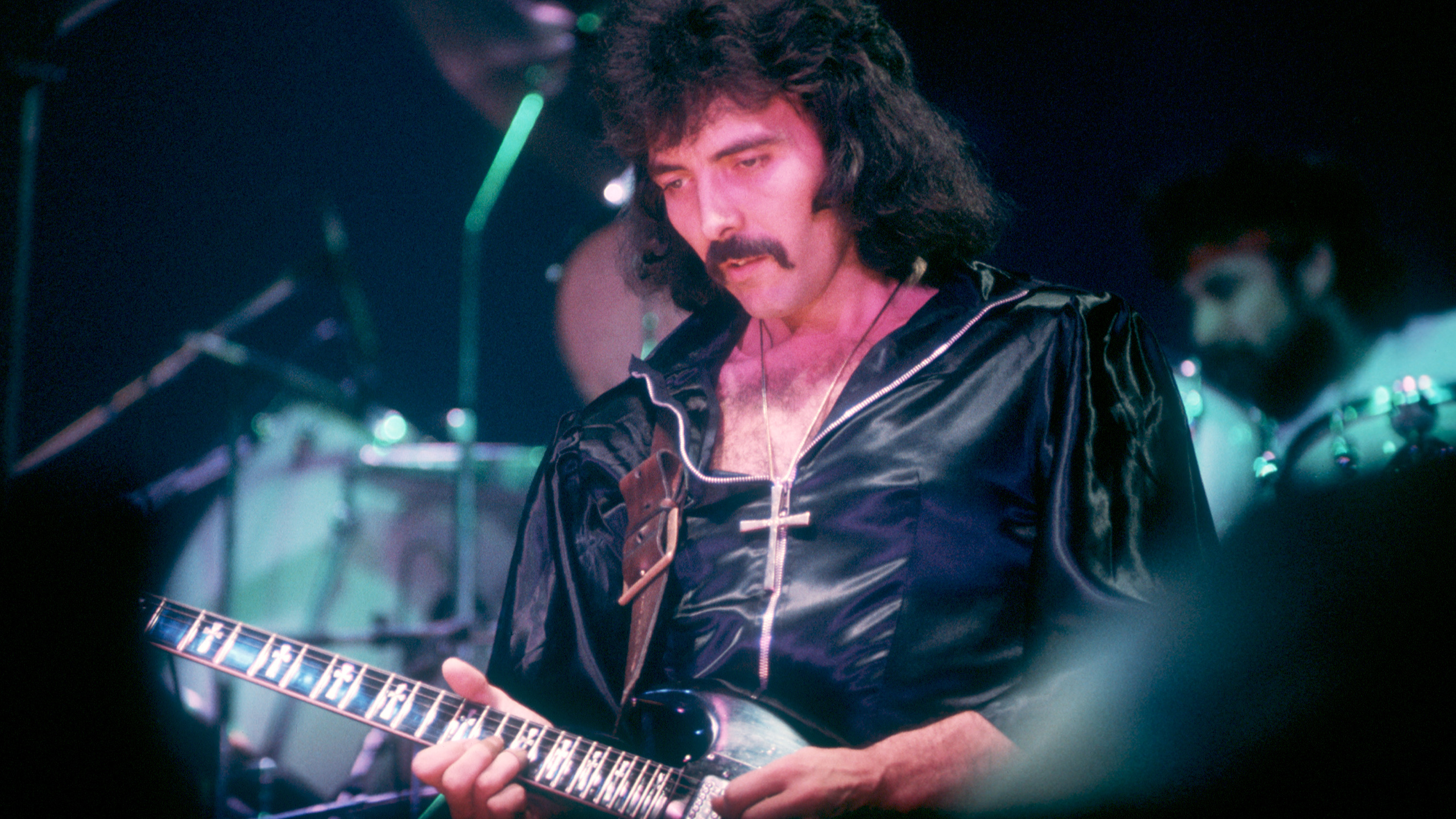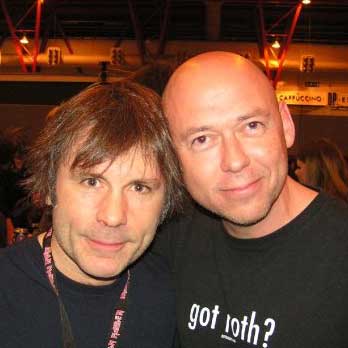“The Eagles were in the same studio, in the room next to us. They had to pack up and go because we were too loud!”: The highs and lows of Black Sabbath in the ’70s - by Tony Iommi

Want all the hottest music and gear news, reviews, deals, features and more, direct to your inbox? Sign up here.
You are now subscribed
Your newsletter sign-up was successful
Black Sabbath packed a lot into the 1970s. They began the decade by inventing heavy metal and ended it by sacking legendary frontman Ozzy Osbourne.
In between were all sorts of highs and lows - which guitarist Tony Iommi discussed in a 2011 interview with Classic Rock.
Iommi began by talking about how the band’s self-titled debut album was slaughtered by music critics upon its release in February 1970.
“It wasn’t nice to read the reviews,” he said. “It’s your first album ever, and you get all the music magazines to see what’s been said about it, and then all you read is: ‘What a load of crap!’ I just went, Oh my God…
“It was hurtful at first, but you learn to live with it after a while. And the most important thing is - we believed in what we did. And that was the way life went for us, right from the beginning. We had to get over a lot of fences.
“I didn’t mind if a reviewer said, ‘It’s not my cup of tea, but a lot of kids do like it.’ But they said that nobody liked us. That was a little upsetting. But we just forged ahead. It’s the only way you can do it.
“You’ve got to believe in what you do. You can’t just fall apart because of what other people say.”
Want all the hottest music and gear news, reviews, deals, features and more, direct to your inbox? Sign up here.
Iommi recalled how Sabbath’s first European tour shaped the sound of their second album Paranoid - and especially its classic opening track War Pigs.
“We ended up playing in this one place in Zurich for what seemed like an eternity,” he said. “In reality it was just a few weeks.
“The first night we arrived there, the place was packed, and it was fantastic. A band was playing, it was their last night and they had champagne. We thought, ‘This is great!’ Little did we know that they couldn’t wait to get out of there.
“When we played the next night the place was as dead as a doornail. We were playing to hardly anybody. Our audience was a couple of hookers and some lunatic who used to do handstands in front of the stage and all his money would fall out of his pockets.
“But we carried on, and we played for ourselves, and it gave us the opportunity to jam and write, because we had so long to play. Every night we had to play seven 45-minute spots. We hadn’t got enough songs, so we used to make up stuff. Which was great, really. That’s where War Pigs came from and some of the other tracks – from jamming.”
As Sabbath got more and more successful, and toured heavily in America, Iommi encountered unexpected challenges with his gear.
He admitted: “We had some problems playing in those big arenas. The Spectrum in Philadelphia, being an ice rink, they had this big machinery in the back – generators to keep the ice from melting. And this machinery always used to effect my equipment.
“My whole guitar sound just turned into this horrendous racket. I had this treble booster that I plugged into my amp, and you name it, it picked everything up – you’d hear a bloody cab radio and all sorts. So those gigs for me were a bloody nightmare.”
The band’s 1973 album Sabbath Bloody Sabbath is one of their very best, but Iommi remembered then making of that album as a struggle.
“We started trying to write and I just hit a wall,” he said. “I couldn’t think of anything. I couldn’t believe it. I’d never had writer’s block before. And the more worried I got, the worse it got.
“In the end we decided to go somewhere that was out of the way, so we went to Clearwell Castle [in Gloucestershire]. I thought, ‘We’ll get a bit of atmosphere there.’
“There were dungeons in the basement and that’s where we set up the gear. And as soon as we got down there, Sabbath Bloody Sabbath was the first track I came up with, the first riff.
“The whole vibe in those dungeons made me come up with that riff. And once we’d got the starter song, we could just carry on. That was great for us. It was really good, quite exciting.”
Sabbath’s 1976 album Technical Ecstasy had a more experimental sound, which, as Iommi recalled, was mostly his own work.
“We had a keyboard player then, Gerald Woodroffe. And we’d gone to Ridge Farm [in Surrey] to write the album and rehearse.
"It was good for me, because I could rehearse with Gerald. The other lads used to stay in bed quite late, so you didn’t want to make too much noise. But I’d sit down with Gerald and we’d write all this stuff. So that album was different from the others, but I did like it.
“We went to Miami to record Technical Ecstasy at Criteria Studios. Maybe that wasn’t such a good idea.
“We all stayed in a place right on the beach, and I’d go down to the studio and nobody would be there!
“The Bee Gees were recording there too. I spent a lot of time hanging out with Barry Gibb. And the Eagles were there, too, in the room next to us. The Eagles had to pack up and go because we were too loud!”
The 1978 album Never Say Die! was the last they made before singer Ozzy Osbourne was fired in controversial circumstances.
Iommi described the recording of that album as a miserable time.
“I don’t know how we got that album done,” he said. “I booked the studio out in Toronto, never having seen it in my life. I booked it because the Stones had used it. But when we got there, it was just too plush, it wasn’t right for us. I had all the carpet ripped up because it just sounded dead in there.
“We had to rehearse in the morning at this cinema, and it was fucking freezing cold. And then at night we’d go into the studio to record. So it was very hard to put that album together, very frustrating for us all.”
It was while promoting Never Say Die! that Sabbath toured with Van Halen as the opening act. This proved a chastening experience as Sabbath were routinely blown off stage by the young and hungry Van Halen.
Iommi confessed: “We were burnt out and had come to a stage in our lives when the band was not right.
“When we did that tour, Van Halen were really hot to trot, whereas we were established, but burning out.
“We were good friends with Van Halen. We had them on tour with us for eight months, and Eddie Van Halen became one of my best friends.
“Eddie was the first guitarist I’d heard come up with the tapping method. And he was a great player. But that tour was difficult.
“Van Halen were really good. They were great musicians, energetic onstage. But we hit a wall.
“We didn’t know where we were going - and Van Halen were really going somewhere. They were jumping all over the stage, and we were like old farts in comparison.
“They used to be side of stage every night watching us. You could see that they wanted to learn. And they did. They worked hard and really did good. We’d gone as far as we could at that point.”
Black Sabbath would begin the next decade with a new singer - Ronnie James Dio.
But that of course is a whole other story…

Paul Elliott has worked for leading music titles since 1985, including Sounds, Kerrang!, MOJO and Q. He is the author of several books including the first biography of Guns N’ Roses and the autobiography of bodyguard-to-the-stars Danny Francis.
You must confirm your public display name before commenting
Please logout and then login again, you will then be prompted to enter your display name.